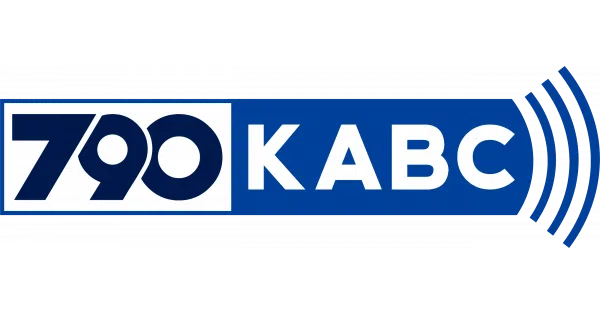Employee Whistleblower Attorney
The top reasons how a Massachusetts Employees can sue for whistle blowing at work includes: 1) they complain about matters that constitute discrimination or harassment based upon a protected characteristic (including sexual harassment); 2) the failure to pay minimum wages or overtime; 3) they are a Sabranes-Oxley Whistleblower; 4) or a healthcare whistleblower under Massachusetts General Laws.
CALL (877) 525-0700 TO SPEAK TO AN EXPERIENCED WRONGFUL TERMINATION LAWYER, OR CONTINUE READING BELOW IN ORDER TO UNDERSTAND WHAT CONSTITUTES UNLAWFUL EMPLOYMENT DISCHARGE IN MASSACHUSETTS
WHISTLE-BLOWING BASED UPON DISCRIMINATION OR HARASSMENT
Employers may not terminate, retaliate, discriminate, or harass an employee who has complained about the types of things the public understands are protected by the ADA (Americans With Disabilities Act), ADEA (Age Discrimination in Employment Act), or Title VII. This means internal and external complaints about age discrimination, disability discrimination, genetic discrimination, Family Medical Leave Act rights violations, national origin discrimination, race discrimination, religious discrimination, sex discrimination, and sexual harassment may not lead to a job termination or other adverse employment action.
Complaints about discrimination or harassment in employment can be about discrimination or harassment experienced directly by the employee, or acts taken towards co-workers. Complaints of discrimination or harassment may be made during a workplace investigation, merely made to management orally or in writing, or reported to the government agencies that take employment discrimination complaints.
HEALTHCARE WHISTLEBLOWERS
Massachusetts General Laws Section 187 provides protections for Massachusetts healthcare workers against wrongful termination. Employees in hospitals, clinics, convalescent or nursing homes, homes for the aged, and other healthcare providers may not retaliate, discharge, demote, harass, or take adverse job actions against their healthcare employees in violation of this Massachusetts Healthcare whistleblower law.
Massachusetts healthcare workers may disclose, or threaten to disclose to a manager at work, or public body, an activity, policy, or practice the employee reasonably believes to violate a law or rule of regulation relating to the professional standards of practice which the healthcare provider reasonably believes poses a risk of public health. Nor may healthcare employers retaliate, discharge, or take adverse employment actions because the healthcare employee testifies before any public body conducting an investigation, inquiry, or hearing. Third, adverse actions may not be taken against healthcare workers participating in any committee, peer review process, or filing a complaint or an incident report discussing unsafe, dangerous, or potentially dangerous care.
Damages to healthcare workers include lost wages, benefits, reinstatement, attorney fees, costs of suit, and expert witness costs. Courts may also cause fines of no more than $10,000 per violation to be paid to the Commonwealth.
Call (877) 525-0700 to speak to an experienced healthcare whistleblower lawyer
SARBANES-OXLEY (SOX) USED TO PROTECT WHISTLE-BLOWING EMPLOYEES
Massachusetts employee lawyers have actively used the Sarbanes-Oxley (SOX) Act of 2002 to protect whistleblowers. SOX has a whistleblower protection clause for employees of publicly traded companies, 18 U.S.C. 1513(e), 1514(A)(a).
SOX whistleblowers are defined as employees who provide evidence of fraud, cause information of fraud to be provided, assist in an investigation regarding any conduct that the employee reasonably believes constitutes a violation of mail fraud, wire fraud, bank fraud, securities fraud, or any rule or regulation of the Securities and Exchange Commission. In brief, SOX protects both internal and external whistleblowers.
SOX's whistleblower protections also extend to employees of a subsidiary of a publicly traded company. The act probably does not apply to employees working abroad for a foreign subsidiary.
Like most whistleblower protection laws, SOX requires the employee to prove they engaged in protected activity, the employer knew of the protected activity, and the employee suffered an unfavorable personnel action. If the employee satisfies his burden of establishing a prima facie case under SOX, the employer must prove by clear and convincing evidence it would have taken the same adverse action absent the protected activity. The evidentiary standard of clear and convincing evidence is a more difficult than the general civil standard of preponderance of the evidence. It is the standard immediately under the criminal beyond a reasonable doubt. SOX is a powerful whistleblower protection law for employees of publicly traded companies.
SOX complaints must be initially filed with OSHA. It is recommended that a SOX complaint be detailed. The complaint to OSHA should include all of the relevant dates, the acts and omissions that constitute violations of securities law. OSHA has a Whistleblower Protection Program website for this purpose. OSHA plans to soon only accept electronic complaints.
SOX complaints must be filed within 180 days of the alleged discriminatory personnel decision. This is substantially shorter than most statutes of limitation.
After a SOX complaint has sat at OSHA for 180 days, an employee may then file a regular lawsuit about the SOX violations in Federal Court.
The remedies under SOX include back pay with interest, reasonable costs and attorney fees. Punitive damages are not available. The law is not well settled on whether SOX allows for the recovery of emotional damages, but some low level federal cases in various districts outside of Massachusetts have allowed emotional distress.
Please contact our labor law firm at (877) 525-0700 if you have any questions about Massachusetts employee rights, or believe you were a whistleblower at work.
Our Firm: No upfront fees or costs
Contingency Fee Representation
All employment cases for employees are taken on a contingency basis. We are only paid a fee when and if we win your case, and we advance all litigation costs. Our goal is to make expert legal representation accessible to every hardworking employee.
Serving Massachusetts County
We have proudly served all of Massachusetts County since 1993.
The Employment Lawyers Group has successfully handled
2,000+
Separate California Employment Cases
Media Engagements
Sample Case Results
Employment Case
$18,402,868
Jury verdict for male visually harassed and subject to crude comments by a female manager
breach of commission contract
$1,150,000
Unpaid commissions of two plaintiffs
unpaid wages
$875,000
For 4 oil field service industry workers whose times worked were not recorded on timesheets and were on-call
Disclaimer: These results are based on the facts of these specific cases and do not guarantee or predict a similar result in any future case.
Practice Areas
Discrimination
Age, Disability, Family Medical Leave (FMLA/CFRA), Gender, National Origin, Pregnancy, Race, and Sexual Orientation claims.
Unpaid Wages & Overtime
Recovering earnings for Overtime, Bonuses, Commissions, Meal & Rest Breaks, and Prevailing Wage violations.
Sexual Harassment
Compassionate and effective representation for victims of sexual harassment and hostile work environment claims.
Wrongful Termination
Representing employees terminated in violation of public policy, contracts, or California and Federal law.
Leaves & Retaliation
Protecting employees who face adverse actions after reporting illegal activity or taking protected medical leave.
Whistleblowers
Advocating for employees who report fraud, waste, or abuse in their organizations under whistleblower protections.
Our California Locations
![]() Bakersfield
Bakersfield
5401 Business Park S, #214,
Bakersfield CA 93309
![]() Sacramento
Sacramento
777 Campus Commons Rd, #200,
Sacramento CA 95825
![]() San Francisco
San Francisco
524 Union St, #400,
San Francisco CA 94133
Additional Sites
About Firm Founder, Karl Gerber
Firm Founder, Karl Gerber, has been an employment wrongful termination attorney since 1993. He has represented a wide range of employees throughout California.
Mr. Gerber has won 51 of the binding arbitrations and jury trials he first chaired, and a number of his appeals are published. This deep trial experience is the foundation of the firm's strategic approach to litigation.
The employment attorneys employed by the Employment Lawyers Group have worked at the firm well in excess of five years, have also tried many different labor cases, and have all been extensively trained on employment wrongful termination by Karl Gerber.
Ready to Discuss Your Case?
Your rights as an employee matter. Contact us for a free, confidential case review.
Contact Us
Share Your Workplace Situation Directly With Our Attorneys Via This Form.















